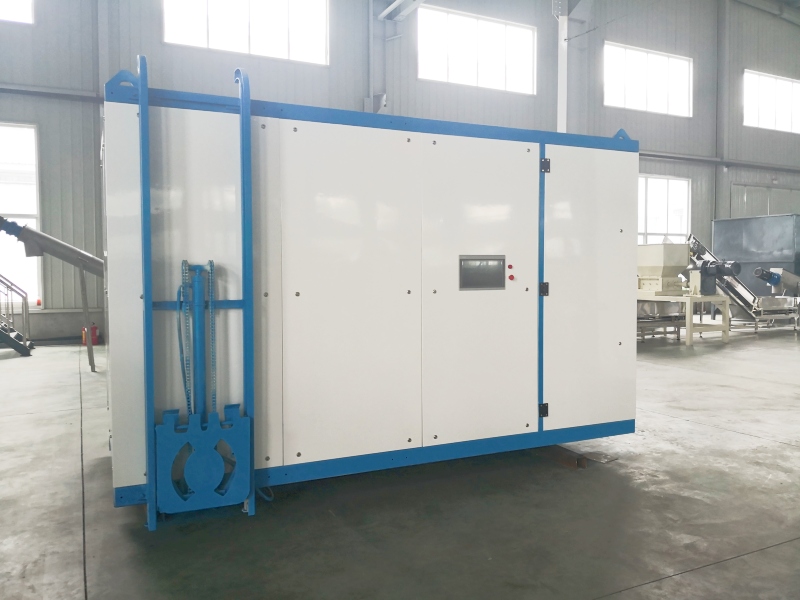
Introduction:
Kitchen food waste dewatering machines play a crucial role in reducing the volume of food waste generated in households and commercial establishments. Understanding the factors that influence their usage is essential for optimizing their effectiveness and promoting sustainable waste management practices.
Technological Features:
The design and technological features of dewatering machines significantly impact their adoption. Efficiency, ease of use, and maintenance requirements are key considerations. Innovations in dewatering technology, such as automated systems and energy-efficient mechanisms, can enhance user experience and contribute to widespread acceptance.
Cost-Benefit Analysis:
The economic aspect plays a pivotal role in determining the adoption of kitchen food waste dewatering machines. Initial investment costs, operational expenses, and potential cost savings in waste disposal are critical factors. Users assess the overall economic viability and return on investment before embracing this technology.
Environmental Impact:
The environmental benefits of using dewatering machines, such as reduced landfill contributions and lower greenhouse gas emissions, influence user decisions. Awareness of the positive ecological footprint and alignment with sustainability goals contribute to increased adoption rates.
User Awareness and Education:
The level of awareness and understanding among users regarding the benefits and functionalities of kitchen food waste dewatering machines is a significant factor. Outreach programs, educational campaigns, and training initiatives can enhance user knowledge and foster a culture of responsible waste management.
Regulatory Environment:
Government regulations and policies related to waste management can either facilitate or hinder the adoption of dewatering machines. Incentives, subsidies, or mandates for waste reduction initiatives can encourage individuals and businesses to invest in these technologies.
Cultural and Social Factors:
Cultural norms and societal attitudes towards waste management practices influence the acceptance of new technologies. Social acceptance, community support, and the integration of dewatering machines into daily routines contribute to their successful adoption.
Infrastructure and Space Constraints:
The availability of space and infrastructure for installing and operating dewatering machines is a practical consideration. Adequate space for installation, power supply, and waste collection infrastructure can impact the feasibility of adopting this technology.
Maintenance and Serviceability:
The ease of maintenance and accessibility of service support contribute to the long-term sustainability of kitchen food waste dewatering machines. User-friendly maintenance procedures and reliable customer support enhance the overall user experience.
Case Studies and Success Stories:
Real-world examples and success stories of institutions, communities, or individuals successfully implementing kitchen food waste dewatering machines can serve as powerful influencers. Sharing positive experiences fosters a sense of confidence and encourages wider adoption.
Conclusion:
The adoption of kitchen food waste dewatering machines is influenced by a combination of technological, economic, environmental, social, and regulatory factors. Addressing these factors through technological advancements, awareness campaigns, and supportive policies is essential for maximizing the positive impact of these machines on sustainable waste management.




If your company wants to establish a business relationship with us, please briefly describe the cooperation intention and send an email to:chuantaiscrewpress@gmail.com























































































![[list:title]](/static/upload/image/20240528/1716877114510915.jpg)